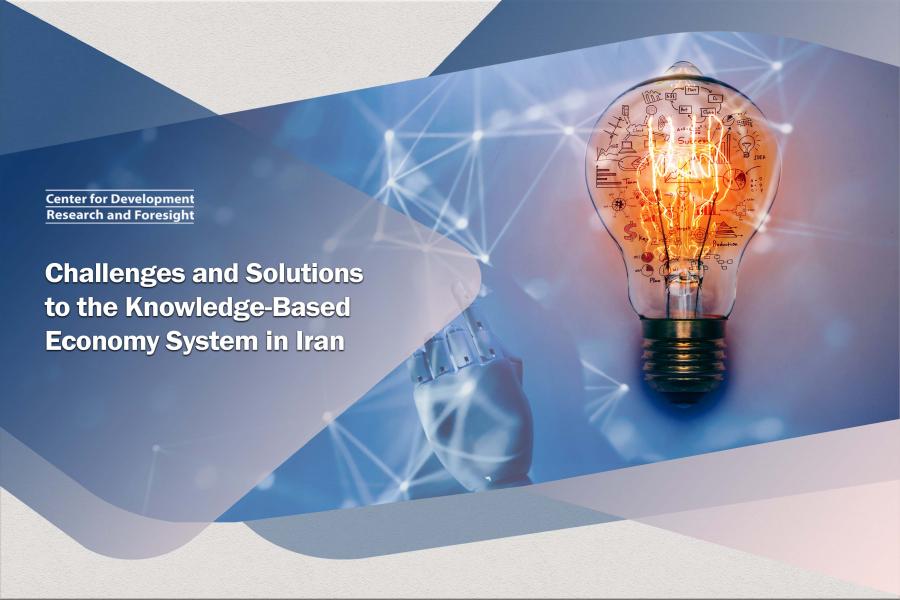
-
بررسی آییننامهها و دستورالعملهای برنامه هفتم پیشرفت
-
بررسی عوامل موثر بر افزایش تصادفات و تلفات جادهای و سوانح رانندگی و دادهکاوی تلفات انسانی
-
سازماندهی و بازآرایی فضایی آموزش عالی کشور
-
به روز رسانی سند ملی آمایش سرزمین
-
انجام مطالعات مناطق آزاد به عنوان نواحی پیشران اقتصادی کشور
-
اصلاح ساختار بودجه و پیاده سازی نظام یکپارچه مدیریت اطلاعات مالی دولت (IFMIS)

In this study, the concepts of knowledge, innovation and knowledge-based economy have been introduced and then the requirements of moving towards a knowledge-based economy have been investigated. Based on the presented materials, one of the standard models that explains the elements of the knowledge-based economy is the model provided by the World Bank, which includes four pillars of education and human capital, information and communication technology infrastructure, effective innovation system, and economic and institutional incentives. In the following, taking into account that the effective innovation system is the most important element of the knowledge-based economy and includes other elements as well, the concepts related to it and its structural and functional aspects have been examined. In the structural dimension, the innovation system includes actors, institutions, interactions and infrastructures. In the functional dimension, various functions have been introduced for the innovation system, of which Heckert et al.'s (2008) model is one of the most reliable and includes the functions of entrepreneurial activity, knowledge creation, knowledge dissemination, research guidance, market formation, resource mobilization, and legitimacyThe results indicate that the low responsibility of the executive bodies responsible for the development of technology and innovation, the traditional nature of the entrepreneurial chain, the weakness of business platforms in the knowledge-based field, and the lack of serious follow-up of laws and regulations supporting innovation and in-house manufacturing have the greatest effect on knowledge-based issues, and factors such as The lack of companies and private funds providing knowledge-based financing and excessive reliance on government resources, the weakness of synergy between legal instruments and institutions active in the knowledge-based field, and the lack of national belief in the ability of technology and innovation of domestic companies to solve the country's problems have the least impact on the identified issues. have.
Also, the results confirm that the lack of meritocracy, management inefficiency, profiteering by some officials in maintaining the status quo, weakness in basic education, weakness in targeted interactions with the world, sanctions and weakness in the globalization of Iran's economy have the greatest effect on the root of knowledge-based issues and as The most important roots affecting knowledge-based issues have been prioritized. On the other hand, factors such as the low quality of some knowledge-based products, the difficulty of simultaneous conservation and development dimensions, managers' risk aversion, the weakness of monitoring the managers' performance and the existence of a safe margin in the management period regardless of the quality of the managers' performance, the lack of a precise definition of the main guardian of the development of the knowledge-based economy in the country, and the lack of Actors' awareness of the capacities of laws and regulations have the least effect on the root of the identified issues
In the following, the cause and effect relationships of the roots were shown and the causes of the roots were determined. Moving from the left to the right side of the graph confirms that the minor roots are on the left side and the main roots are on the right side of the graph.
Based on the results of this research, the four roots of profiteering by some officials in maintaining the status quo (conflict of interests), lack of meritocracy, managerial inefficiency and weakness in basic education were identified as the main roots or the causes of the roots.



